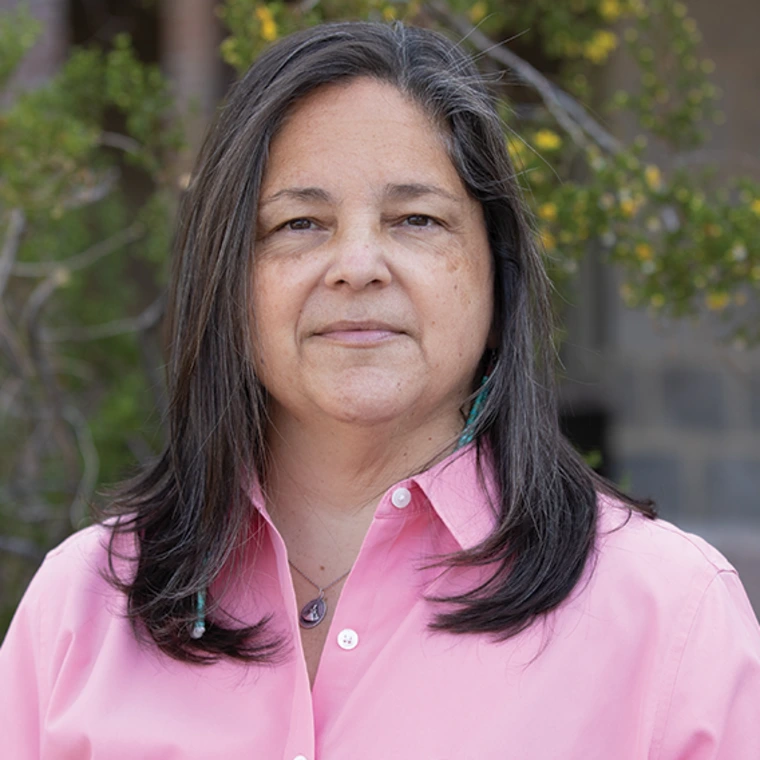Reid Gómez
I live in language; music is my life. My methods center story and words as conceptual containers. Writing, dancing, and drumming structure my poetics.
My work reveals how much grammar matters. I am playing a part in three conversations: Black|Indigenous, slavery|colonization, and writing|translation. I enact multiplicity and nonlinearity; a decolonial method of story, grammar and theory that addresses the multiple joints of Black and Indigenous cultural production in the Américas. My monograph The Web of Differing Versions: Where Africa Ends and America Begins (University of Minnesota Press, 2026), is my book on slavery and otherness. This monograph makes a significant contribution to hemispheric studies by enacting a new mode of scholarship, through trans engagement with many fields. Trans is an important prefix: transdisciplinary, trans studies, translanguaging, transmotion, trans-indigenous and translation.
My Slavery Broadcasts are a form of music literacy that connect to the pedagogy of the slave. These broadcasts are a mode of decolonial academic production that expand forms and methods of scholarship, and the analytical possibilities that thrive outside of imposed Western paradigms. My analytic centers the elaborate connections that exists between racialized people, land, and sea, while attending the ubiquity of escape, revolt and beauty/hózhǫ́.
My work is Pacific minded. What changes if we think through and with the Ocean? We can let go of the notion of Asia and think in ways that are relational. Following my analytic of the landsea, we can live not knowing where one ends and the other begins. This is a world of relations not others.
Writer, Dancer, and Percussionist.
Assistant Professor, Gender and Women’s Studies, University of Arizona.
Author of Say, Listen: Writing as Care by The Black | Indigenous 100s Collective.
Published in the following: Time, Space, Matter in Translation, Lingering, Auburn Avenue: The Gender Issue, Still Here San Francisco, Reckonings: Contemporary Short Fiction by Native American Women, Bay Poetics, Latina: Women’s Voices From the Borderlands, Aztlán: A Journal of Chicano Studies, Chicana/Latina Studies: The Journal of MALCS, American Indian Culture and Research Journal, Diálogo, an Interdisciplinary Studies Journal, Wicazo Sa Review, Studies in American Indian Literatures, Reading Native American Women: Critical/Creative Representations.
AREAS OF RESEARCH AND TEACHING:
Language and Language Revitalization; Translation Studies; Black Studies; American Indian and Indigenous Studies; Slavery; Colonization; California; Black and Indigenous Feminisms; Black and Indigenous Theory and Methods; Trans Studies; Music, Dance and City/Urban Planning.


